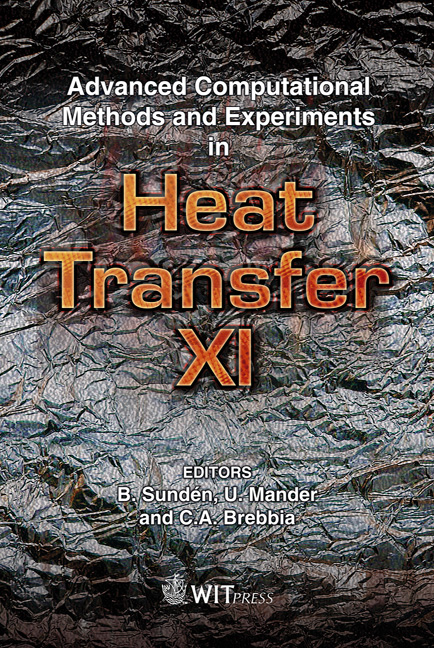Use Of Experimentation In The Accurate Numerical Simulation Of Thermal Processes
Price
Free (open access)
Transaction
Volume
68
Pages
12
Page Range
241 - 252
Published
2010
Size
3,648 kb
Paper DOI
10.2495/HT100211
Copyright
WIT Press
Author(s)
Y. Jaluria
Abstract
Experimental results play a crucial role in the validation of mathematical and numerical models for a variety of thermal transport problems. Material properties that are crucial to any accurate simulation are obtained experimentally. In addition, there are many important processes where the boundary conditions are not well defined. However, experimental work can be used to provide the appropriate boundary conditions, or the numerical solution of a coupled inverse problem can be used to define these for an accurate simulation. Finally, there are many problems in which numerical simulation is particularly suitable over given parametric ranges, while experimentation is more appropriate over other regions. In such cases, a concurrent numerical and experimental approach may be used to solve the problem more accurately and efficiently. The basic considerations that arise in these approaches are outlined. A few circumstances, where a coupling of the experimentation with the simulation is appropriate, or where experimentation is used to define the boundary conditions are presented. Keywords: numerical simulation, thermal processes, systems, experimentation. 1 Introduction Numerical modeling and simulation of basic and applied problems is extensively used in thermal systems to understand the underlying phenomena and design and optimize the system. Numerical simulation is of crucial importance because of the limited applicability of analytical methods, particularly for practical applications which are generally quite complicated, and the expense and time involved in experimental methods, see Jaluria [1]. The model is often validated by the use of analytical and experimental results, if available. Experimental
Keywords
numerical simulation, thermal processes, systems, experimentation





